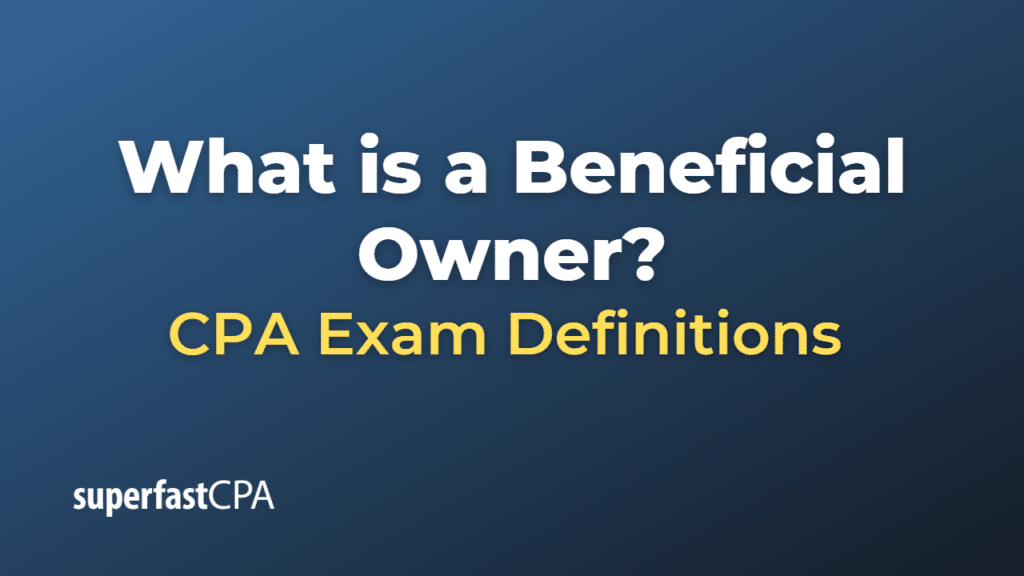Beneficial Owner
A beneficial owner is a person or entity who enjoys the benefits of ownership of an asset, such as stocks, real estate, or bank accounts, even though the legal title or control of the asset may be held by another person or entity. The beneficial owner is the true owner of the asset, as they hold the ultimate control over it and receive the economic benefits, such as income, capital gains, or voting rights.
In many cases, the legal owner of an asset may act as a nominee, trustee, or custodian on behalf of the beneficial owner. The separation of legal ownership and beneficial ownership can provide a degree of anonymity, asset protection, or tax advantages for the beneficial owner. However, this arrangement can also be misused for money laundering, tax evasion, or other illicit activities.
To combat such issues, financial institutions and regulators have implemented anti-money laundering (AML) and know-your-customer (KYC) regulations, requiring the identification and verification of the beneficial owners of assets and financial accounts. These regulations help to increase transparency, prevent financial crimes, and ensure compliance with the applicable laws and regulations.
In summary, a beneficial owner is the individual or entity that ultimately controls and benefits from an asset, even though the legal title or control may be held by another party. Identifying and verifying the beneficial owners of assets is an essential part of financial compliance and risk management.
Example of a Beneficial Owner
Let’s consider a fictional example involving a trust arrangement:
John is a wealthy individual who wants to set up a trust for his children, Emily and Michael, to ensure their financial security. He decides to transfer some of his assets, including real estate properties and a portfolio of stocks, to a trust managed by a professional trustee, TrustCorp Inc.
In this scenario:
- Legal owner: TrustCorp Inc., as the trustee, holds the legal title and control over the assets transferred to the trust. TrustCorp Inc. is responsible for managing the assets according to the trust agreement, making investment decisions, and following applicable laws and regulations.
- Beneficial owner: John’s children, Emily and Michael, are the beneficial owners of the assets held in the trust. Although they do not have direct legal ownership or control over the assets, they are the ultimate beneficiaries of the trust and will receive the economic benefits, such as income generated from the properties and dividends from the stocks.
In this example, the trust arrangement separates legal ownership from beneficial ownership, allowing John to provide financial security for his children while the professional trustee, TrustCorp Inc., manages the assets on their behalf.
It’s worth noting that if TrustCorp Inc. were to open a bank account or engage in financial transactions on behalf of the trust, financial institutions would likely require the identification and verification of the beneficial owners (Emily and Michael) as part of their AML and KYC procedures to ensure transparency and compliance with applicable laws and regulations.













